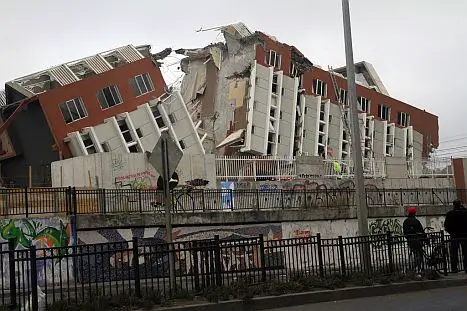
High-intensity earthquakes often make several buildings collapse. An earthquake is actually the result of sudden releases of high energy that take place from the crust of Earth. Since an earthquake leads to travelling waves of high intensity, such waves can easily give a jolt or shock to any building. However, one never knows the direction these waves would take. There could be slips in a fracture that could go up, down or even horizontal. When buildings are designed, these are made to bear their own vertical load. Attention is also given to design buildings in a way to bear some lateral load.
A high-intensity earthquake could jolt a building laterally or vertically, depending on its slip direction. In any of these cases, a building could experience so much lateral or vertical load that is beyond its bearing capacity. Thus, its structure might face damage to such an extent that the entire building could collapse. If a building is built on soft soil, then even a light-intensity earthquake is enough to turn that soil into sand. When this happens, the building loses its capacity of handle its own weight, and thus, falls down.
Sometimes, multiple earthquakes occur and shake the foundation of a building. Even though a building is designed to bear more than its own weight, a series of quakes are enough to affect its foundation. This happens because of the jolts faced from different directions. Additionally, a higher building is heavier and has more chances of collapsing during quake times. However, it all depends on the force applied by an earthquake. Thus, one cannot be sure of a building that would not collapse during an earthquake.
As quake waves may attack a building from any direction, you may also see some soft floors collapsing due to the failure of building joints. On the other hand, a building made of lightweight materials may completely collapse. Therefore, several reasons together may determine the extent of damage in a building.